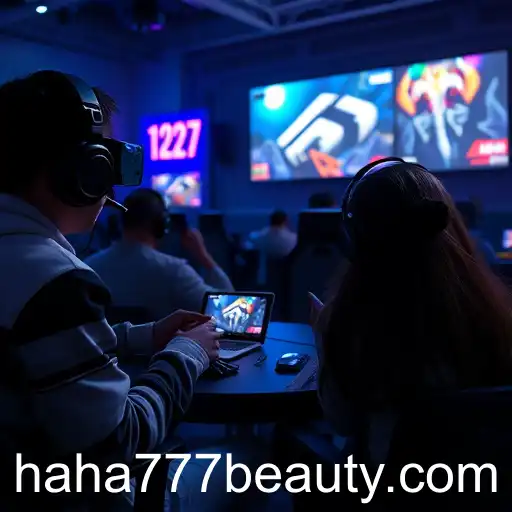
Exploring the dynamic shifts in the online gaming industry as we navigate the middle of the decade, with a focus on community building and technological advancements.
As we delve deeper into the year 2025, the gaming industry continues to evolve at a relentless pace, driven by technological innovations and changing consumer preferences. One of the standout themes in this evolution is the rise of community-centered platforms like 'haha777 beauty', a keyword that resonates with a new generation of gamers seeking not just entertainment but also social connection.
The gaming landscape has witnessed a fundamental shift where players are not only consumers but active participants in co-creating their gaming experiences. Platforms that leverage community interaction are seeing unprecedented growth, as they provide a sense of belonging and enable gamers to share experiences in virtual environments. This dynamic is not just reshaping how games are played but also how they are developed, with user feedback loops becoming integral to game design.
Technological advancements have played a pivotal role in this shift. The integration of augmented reality (AR) and virtual reality (VR) into gaming experiences is creating immersive worlds that blend the digital with the physical. Such technologies are enabling developers to push creative boundaries and provide gamers with experiences that are both visually and emotionally engaging.
Another significant factor propelling this transformation is the booming esports industry. Recorded revenues exceeding several billion dollars annually underscore its global appeal. Traditional sports franchises and celebrities are increasingly investing in esports, validating it as a mainstream form of entertainment. This trend is facilitated by gaming platforms that cater to both casual and professional players, offering a pathway from recreational play to competitive arenas.
As online gaming communities flourish, the societal implications are also becoming more pronounced. Games have become vehicles for cultural exchange and political discourse, highlighting the potential of virtual spaces to influence real-world dynamics. However, this also raises concerns about digital privacy and the need for robust regulation to protect users.
In conclusion, the gaming industry's ongoing transformation, highlighted by keywords such as 'haha777 beauty', signals a future where games are not just isolated experiences but integral parts of social fabrics. As we continue to witness rapid advancements, the focus remains on fostering inclusive, safe, and engaging environments for all players.




